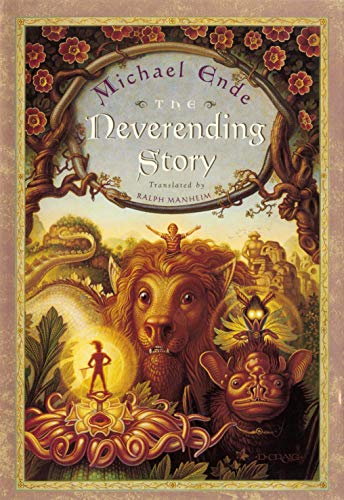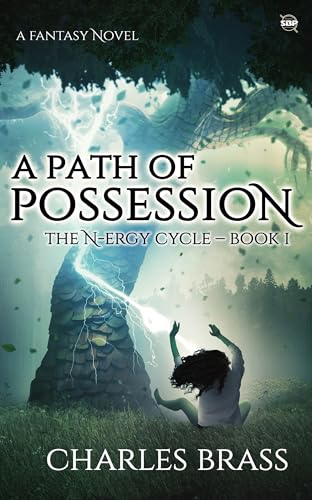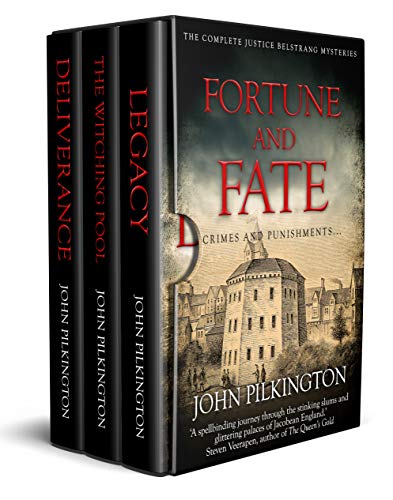A beautiful princess turned slave-concubine with the ability to see the future…
A vengeful curse from an all-powerful god that casts doubt on all her prophecies…
In this rich re-imagining of classical legend…
mythology, history and fiction merge seamlessly to create an enthralling story of love, war and betrayal…
All for just 99 cents!
CASSANDRA, THE MOST BEAUTIFUL OF PRIAM’S DAUGHTERS – A Tale of Troy
by Thomas Ochiltree
Cassandra was the Trojan princess offered the ability to see the future by the god Apollo in exchange for agreeing to have sex with him. When she reneged on the promised sex, he added the curse that her prophecies – all accurate – would never be believed, condemning her to a life of frustration made all the greater by the fact that she lived through the Trojan War. Her desperate efforts to warn her loved ones and her city of impending disaster would be in vain.
The novel begins when Cassandra – here portrayed as a beautiful and profoundly sensitive young woman – is about to go into the homecoming dinner offered by Clytemnestra, the wife of King Agamemnon, who won Cassandra in the lottery of Trojan women after the fall of Troy. Her prophetic powers tell her that murder awaits both him and her at the hands of Clytemnestra and her lover. She has tried to warn Agamemnon, but of course was not believed. Unsure whether those who descend to the underworld (as she knows she very soon will do) retain any memory, she mentally reviews one last time the whole rich tapestry of the Trojan War as witnessed by her – the essence of the novel – before going to her fate with the firm step of a Trojan princess and of – in Homer’s words – “the most beautiful of Priam’s daughters”.
an excerpt from
Cassandra, The Most Beautiful of Priam’s Daughters
(A Tale of Troy)
by Thomas Ochiltree
CHAPTER ONE
Not bad. Looking in the polished silver mirror – polished silver, mind you, not brass, for nothing is too good for the concubine of Agamemnon, King of Kings, even though he’s about to be slaughtered like a pig, along with me – I see that I can still lay claim to being – well, it was others who said it – “the most beautiful of Priam’s daughters”.
Of course they also called me mad – even my mother Hecuba – but then again, they were right, at least part way.
“The most beautiful of Priam’s daughters”. Of course laying claim to that title is easier given what Priam’s other daughters, and the other women of Troy, have been through. It seems to have marked me less, maybe because I was trained for adversity in advance by the curse I brought upon myself.
Mother, a female dog now with eyes like glowing coals. At least she had her vengeance. My sister-in-law Andromachē with that memory of what happened at the Scaean Gate.
No, I don’t look bad. I would have thought the fear of my impending death would have been clearer in my reflection in the mirror.
After all, who doesn’t fear going into the House of Hades?
Oh, I don’t fear the torture of Tantalus with the water he can never drink to relieve his terrible thirst, and the fruit he can never reach to relieve his terrible hunger, nor the torture of Ixion fastened to an ever-spinning wheel, nor the tortures of the others. The gods imposed those punishments to make an example of the particularly defiant, or more likely, to satisfy their private vindictiveness, for the gods are vindictive, as the War has taught us. They don’t care about the rest of us. Take what Athena did to the homeward bound fleet of the victorious Greeks. That wasn’t about me, faithful worshipper of hers though I always was. It was about the affront to herself committed by Ajax. The Lesser Ajax, not the great warrior who killed himself before Troy fell. Does Hades care about his dead subjects, who come down to his kingdom in an endless procession, endless, endless?
Not a bit of it, I’m sure.
The dead: shades, shadows of their former selves, living out a simulacrum of their former lives. I’ll be one very soon, in just a couple of hours, as will the King of Kings. It’s hard to accept, even for one who has gone from being a Princess of Troy to being a slave concubine.
Psecas, the maid holding the silver mirror before me, is a slave too, of course. I like to think – pride dies last, the saying has it – that one can tell the difference. She is very pretty, with all the prettiness of her fifteen years.
Prettier than I am?
No doubt, given her greater youth and what I’ve been through. But, I tell myself – and one holds on to such things two hours before one’s death – she was born a slave and I was born a princess.
I look again in the mirror, then at Psecas. I think (or hope, or fantasize) that against her youthful prettiness I have the dignity of my birth.
After all, even though I’m to die in a couple of hours, my corpse lying in its own blood next to him whom I think of as the “Big Lug” – who isn’t so bad after all – fear doesn’t mark my face.
Fear doesn’t mark my face even though I know what the House of Hades is like, know it because in a vision I heard the words the ghost of the hated Achilles (Polyxena!) will say in the future to Odysseus that he would rather be alive and the slave of a landless man than a king in the underworld.
Does the fear not show because resignation cancels it out?
Perhaps.
When I warned the Big Lug, Agamemnon, King of Kings, my master, of his impending murder I knew it would do no good. It never has. Such is the nature of my curse. But I did it anyway. And after he laughed off my warning I felt this terrible exhaustion from being disbelieved so many, many times.
Let it end.
It started with a stupid mistake by a fifteen-year-old girl. Me. And I have been richly punished. I’m tired of the punishment. Even the shadow world of the House of Hades must be better.
Or is it? Even with the punishment I could take pleasure from life.
That evening, for instance, when Achilles had withdrawn from the fight and it looked like we might win after all, I went up with Andromachē on to one of the two towers flanking the Scaean Gate, and saw the watch fires of our men, who had made their sortie under the command of my brother Hector, and were waiting for dawn to attack.
I knew it wouldn’t work. I knew because of the awareness given to me by the punishment I had brought upon myself. But looking at the myriad watch fires I felt hope even as I knew that hope was vain.
Is that part of the punishment? To feel hope even as I know it is unjustified? The gods are good at cruelty, though I did myself in all those years ago as the sea sparked in the sun between the island of Tenedos and Troy, and I, as a fifteen-year-old girl, aware of my youth and beauty, felt life would go on forever and I could even defy a god. Little did I know.
Andromachē, Hector’s wife and my best friend, my “big sister-in-law”, stood there next to me on the tower, pointing out the innumerable watch fires, predicting the great things her husband would do on the morrow. Predicting them not on the basis of a gift, or curse, of prophecy, but because she believed in her husband. And he did those great things. And in the end he was killed, and the offensive failed, and later the War was lost.
Andromachē is much taller than most women. Actually, in Troy she was made fun of behind her back on this account. But the ridicule was kept in bounds by the fact that she was loved by – not merely married to, but loved by – Hector, our sole hope, our greatest champion, and the finest man in Troy.
Before the offensive, Hector had told her he thought the War was lost. He said his own death was nothing compared to his vision of her future slavery. (It was Neoptolemus, also called Pyrrhus, the son of Achilles, who won her in the lottery of women after Troy fell to the Greeks).
She told me then on the tower, on the evening before our final offensive, in a whisper what he had said about the lost War and his impending death, and her impending slavery, even though our watch fires – the watch fires of that offensive – gleamed before us and our horses chomped their barley feed as our warriors awaited the dawn.
But even as she said these things, I could tell she did not believe her husband’s words. She hoped for victory. But she would be present when her little son Astyanax….
As for me, up there with Andromachē on the tower, I knew the offensive would fail. Knew it not clearly, but in my bones, for the knowledge that’s part of the curse comes upon me irregularly and in different ways, often creeping up on me gradually, sometimes bursting upon me suddenly. This time it was the former case.
But even knowing our situation was hopeless, seeing the sparkling watch fires I sensed how afraid the Greeks were as they too looked at them, I sensed how powerful our forces were, and I reveled in the future glory of my brother Hector, greatest of all the Trojans.
Does Apollo look down on my endless frustrations and laugh? Or has he forgotten all about why he imposed the curse, so that the punishment goes on inflicting itself in a mindless, pointless way? Well, it will soon be over at last.
“Thank you, Psecas, my hair looks very nice,” I say to my maid. No reason not to be polite to a slave, particularly when you are one yourself. Actually, I was polite to the slaves even when I was a Princess of Troy. I always prided myself on being a decent person more than on being “the most beautiful of Priam’s daughters.” None of this helps. Or maybe it does. When you’re about to go down to the House of Hades, which lies as far below the earth as the earth lies below the sky, down to the grim shadow world from which there is no exit ever, there is some comfort in having been a decent person. As for being the most beautiful of Priam’s daughters, I always thought my little sister Polyxena when she reached her fifteenth year beat me hollow.
Little Poyxena. What a fate! The mere thought makes me shudder, as does the thought of the Lesser Ajax, Ajax son of Oïleus, and the statue of Athena. But it is really is best not to think of that.
My hair does look very good. The Big Lug wants me to look my best tonight, and as for me…well, shouldn’t a woman look her best for her death?
I call him “The Big Lug” not in contempt, but with a certain odd affection.
Funnily enough, I’m sure he really loves me, the Big Lug, even though he won me as a piece of property when we Trojan women were put up in a lottery after the city had been taken and burned. All of us. Hecuba, my mother, the Queen! Andromachē, all of us. Except sweet, pretty little Polyxena, my beloved little sister, for a different fate was in store for her.
But when I went by lot to Agamemnon, the King of Kings, the leader of the Greeks, and we were alone in his tent, it wasn’t what I expected. Not the triumphal rape of one of Priam’s daughters, anyway.
He entertained me with wine and treated me as an honored guest, more as a princess than as what I was, namely his property.
Not that things didn’t end up where they were fated to end up, which was no trauma for me, for I had already had my virginity stripped from me, and knew what I now was, namely a slave-concubine.
As we dined he paused over his wine and looked up at me and said suddenly and unprompted, “I’m sorry about Polyxena.” He could have added that he had to do what he did because of his responsibility as King of Kings. He could have mentioned Iphigenia; after all Iphigenia was his own daughter. But he simply said “I’m sorry about Polyxena” without adding any self-justification. And as he looked at me, there was complete sincerity in his eyes.
He’s every inch a king. With his broad chest and magnificent beard he looks the part. One of the Greek bards in one of our many stopping paces on the way back – they’re all singing of the War now – described him as having “the head and eyes of Zeus who delights in thunder…like some bull ruling the herd who stands out among the huddling cattle.”
That’s poetic license, but he does look the part. And more importantly, he acts the part. Indeed, it’s not even a part: it’s what he is. During our final offensive, fighting personally he almost turned the tide against us, even though Hector was still alive. Even without Achilles, who was sulking on the sidelines. Horrible though it is to say, he showed himself a king in the business with Iphigenia. And Polyxena? Better not to think of that.
As we passed from island to island in a triumphal tour on the way back to his kingdom of Mycenae he came to take me into his confidence. It’s lonely being a king, as I know from Father. And lonely men like to tell their troubles to women. I know that from Polymela, my former nurse, who was one of Father’s many slave mistresses when she was young. She used to tell me the many things Father had confided to her, things I suspect he would never dreamed of telling Hecuba, his wife and my mother. It’s the same with the Big Lug.
It was at the first or second island we stopped at on the way home. In the palace of the kinglet who entertained us, Agamemnon led me to his chamber after an endless dinner. A painful dinner for me, at least, for the minstrel was already singing of Troy’s overthrow. Mind you, the Greek minstrels are very good and tell this story very well.
As we lay in bed after he made love to me – and I think he really sees it as making “love” though this may just be female vanity on my part – he started to talk about the business with Iphigenia.
“She looked so pretty, adorned in her wedding finery, with pride and happiness painted all over her face at the thought of her wedding, and a wedding to the greatest Greek warrior of all – Achilles.”
Would I have felt that way betrothed to Achilles? Well, perhaps before the business with Hector’s body, and above before all the death of Polyxena, though I still don’t think he would ever have seemed to me my type. True, Achilles was as handsome as a god. But then I turned down a god. Funny how I’m secretly proud of that, even though in doing so I wrecked my life.
“A blushing bride,” Agamemnon went on. “Nervous, of course. Nervous at the thought of being transformed from a virgin into a woman. Nervous at the thought of married life to come. But ready for both with a maiden’s courage. A fine, fine girl.”
I heard a distinct catch in his voice. Not quite a sob, but something that would have been a sob if he had let it. But a King of Kings doesn’t sob in the presence of his slave concubine, even one he may have fallen in love with.
There was a lamp burning – he said he liked the light so he could enjoy my beauty as we made love – and I could see his noble, kingly features. For a moment I had hesitated to look, for fear of offending his dignity. But I had to. I could see his broad, handsome face was filled with pain.
“Wasn’t it Calchas the prophet who suggested that you…?” I said, hoping to soften that pain.
“It was my decision!” he said, with an edge in his voice that suggested resentment at any suggestion that he, as King of Kings, bore anything less than total responsibility for something he had ordered.
“And Calchas was right. After the…the…thing was done, the wind shifted around 180 degrees, a fine wind to take us straight to Troy, to your Troy, my dear, to your Troy’s destruction.”
“To your victory,” I said gently.
“We got my brother his Helen back,” Agamemnon said curtly in a tone that raised many questions in my mind. I can – whether I wish to or more usually not – often see the future, but I can’t read the human heart any better than anyone else.
“So anyway,” he continued, “Calchas the seer was right and the thing had to be done. It was my responsibility as King of Kings, and I took it. But … but she did look so pretty and sweet in her wedding finery, so … so trusting … and I had so looked forward to seeing her as a real bride. She would have been one without the War. She was fifteen, there were already suitors sending gifts to me….”
I had been just fifteen, with suitors sending gifts, when I wrecked my life.
He paused, breathing heavily, and was silent a while.
“I don’t think she suspected anything…until just before it happened….” He said, and this time there was a sob, unmistakable.
“I’m sure she didn’t,” he went on quickly. “Calchas was fast about it….”
And so he told the whole story in fits and starts. How on the island of Aulis, where the great fleet lay over on its way to Troy to reduce that city – my city – to ashes and avenge the honor of Agamemnon’s brother Menalaus by getting back the latter’s wife Helen, who had run off with my brother Paris, Agamemnon had gone hunting and had shot a stag with an arrow. It was a remarkable shot, given the distance, and he had boasted that even Artemis, the sister of Apollo, Artemis who is a goddess and who spends most of her time hunting with her train of nymphs, could not make such a shot.
You don’t make that kind of remark about the gods, not if you have any sense. They’re mean-spirited and vengeful. I should know, from my personal experience, and Artemis is particularly vindictive. After all, she turned a man into a stag so he would be torn to shreds by his own hounds, and that just because he had accidentally seen her naked while she was bathing in a pool. Actaeon, that was the man. And there are many other such stories about her. One of the few consolations about being about to be murdered and go down to the House of Hades is that you can think or say what you wish without fear of The Gods Above. They have no interest in the Realm Below. Not that the Gods Below are any more merciful, I imagine. But how can they resent the shades, who are nothing? Are the shades nothing? I hope so and fear so.
But being turned into a stag and torn apart by his own hounds as happened to the luckless Actaeon wasn’t Agamemnon’s punishment for his sacrilegious boast. That would have been too quick, or at least so I assume Artemis figured. The goddess clearly wanted something that would torment him for the rest of his days, and she hit upon it with the accuracy of one of her famous arrows.
No sooner had he made his boast than the wind, which had been fair for Troy, turned dead foul. And stayed that way, day, after day, week after week, month after month, as the other kings grew more and more impatient. After all, they hadn’t wanted, most of them, to come on the expedition. They were there because before Helen chose Menelaus they had sworn to take her back by force if anyone carried her off from the husband she chose. At the time they were thinking of each other as potential kidnappers, not a Trojan, but that’s another matter.
Even Achilles hadn’t wanted to come. Odysseus – who hadn’t wanted to come either, even though the oath had been his idea – tricked him into doing so, even as he himself had been tricked into so doing. So there they all were on the island of Aulis, as days turned into weeks and months, and the wind remained dead foul, a wind that kicked up a sea that made proceeding under oars out of the question. There was definitely mutiny in the air, Agamemnon noted to me.
So, increasingly worried, he consulted the seer Calchas, Calchas son of Thestor, from Megara. A great prophet, and more deadly for Troy even than Achilles, who after all didn’t live to see it fall. For without Calchas’s advice – not merely on this matter, but on other matters such as the bow of Philoctētēs, the participation of Achilles in the War, the horses of Rhesus, and the Palladium – the city could never have been taken by the Greeks, even after the ten year siege they put into the task.
“Calchas didn’t want to tell me what he had to after I had consulted him about the wind, but I ordered him to…” my poor Big Lug said in the flickering lamplight.
And what he said was as follows: Artemis was bitterly offended by Agamemnon’s boast about being a better hunter. And she would keep the wind foul forever unless she was offered an expiatory sacrifice.
A human sacrifice, something unheard of among the Greeks, as it is among us Trojans.
The sacrifice of Agamemnon’s own daughter, Iphigenia.
And so, though he loved her more than anything in the world, he had her sent for, telling his wife Clytemnestra that their daughter was to be wed to Achilles himself, the son of a goddess of the sea and by far the greatest of the Greek warriors.
And so Iphigenia came as bidden by her father, and so the 15-year-old was decked out in her wedding finery and led to the altar for the nuptial sacrifice. She thought it was a young cow standing next to the altar for the purpose of deception that was to be sacrificed to ensure happiness for her marriage.
And so the deed was done.
I hope – I don’t know, for I cannot read the past, only the future – that her still-grieving father is right, and that the time was of the briefest between her realization that she, not the heifer, was to be the sacrificial victim, and the slitting of her throat by Calchas.
But there must surely have been some time for cognizance. And who can imagine the bitterness of heart she must have felt? Not just the natural terror at impending death, but the bitterness at knowing that she was to be slaughtered like a heifer at her adored father’s orders.
Do the dead take such bitterness down to the House of Hades with them? I hope not. I hope that we feel nothing, even though I dread that lack of feeling. I’ll know soon enough.
I’d heard elements of the story before. But hearing Agamemnon, the girl’s father and killer (not physically, but he was responsible), tell it, with the voice in which he told it, I could not despise him for the deed. I could only feel sorry for him.
And though I could never forgive him for the business with Polyxena, in some way I could understand.
“Did Clytemnestra forgive you the sacrifice of her daughter?” I asked. (Then I didn’t know. Now that I see Clytemnestra before my mind’s eye about to take her vengeance, I do have the answer to that question, even though the murder to come – of him and me – is not just about Iphigenia.)
“I’m not sure,” he said. “She wrote to me saying she understood. I wouldn’t have understood if I were a mother.”
And so it went: all the things that bothered him, all the things he had done throughout his life that he regretted as wrong or foolish…night after night he poured them out to me by the light of a lamp that he always kept lit.
The business with Achilles, for instance: how the father of Agamemnon’s captive concubine Chryseis, who had been taken with one of Troy’s allied cities early in the campaign, was a priest of Apollo and had called down on the Greek army a plague to make Agamemnon give the girl back. Apollo had responded with the requested plague.
“The men were dying like flies. So I had to return her. It was my responsibility.”
But in giving back Chryseis he had felt his kingly authority diminished, particularly as he was the only king in the army without a concubine, even though he was the King of Kings.
So he took Achilles’ concubine, the girl named Briseis, a princess of another defeated ally of Troy.
“It was idiotic. I should have known how the touchy and arrogant Achilles would react. I shouldn’t have been surprised when he pulled out of the fighting and your side nearly won. After all, Achilles was the only match for your brother Hector we had. Taking the girl was idiotic. And it was unfair and wrong.”
That’s the thing about him. Underneath that majestic exterior the Big Lug really worries about whether he is doing right.
Well, perhaps no wonder, considering the family he comes from.
And that bothers him.
“Human flesh,” he said another night as we hopped from island to island.
“Human flesh,” he repeated.
I’d spent enough nights with him by now to know that that was a cue, that he wanted me to prompt him to tell a story he needed to get off his chest.
I knew from those words “human flesh” that it wouldn’t be a very pleasant story, for even in distant Troy before it fell the basic outlines of the dreadful tale were known. But funnily enough I wanted to comfort him then, just as I wish I could to save his life now.
“Your father?” I said gently, stroking his beard. “Don’t talk about it if you don’t want to. Don’t think about it if you don’t want to. There are many things I refuse to think about.”
There was a moment of silence.
“My own father…” he said, and then he began the tale, which clearly never completely left him for a minute, even in the heat of battle.
The story is a long and involved one, like all the numerous curses the Greeks seem to suffer under (I’m one to talk!) but in essence Agamemnon’s father Atreus and Atreus’s brother Thyestes vied for the throne of Mycenae, greatest of the Greek cities, a city with a sort of overlordship over the rest.
Thyestes got the throne by trickery, trickery in which he was abetted by Atreus’ wife, whom he seduced for the purpose. Atreus eventually got the throne back, and decided on vengeance. Pretending reconciliation, Atreus invited Thyestes to a banquet. A fine banquet, with exquisite meat….
“My father never talked about it,” Agamemnon said to me as we lay together in the lamplight. Maybe it was that flickering lamplight, or the mood that comes on one after physical relations, that brought on confidences of this sort. The gods know, I didn’t seek them…well, this time I was fascinated….
“He never talked about it, and of course I never dared ask him. I was terrified of my father, and not just because of this event. But I was a precocious child….”
Me too, I thought, and it didn’t help me any more than it did you, my poor Big Lug….
“The story hung in the palace like a kind of fog,” Agamemnon said. “Finally I got it out of the Chief Cook.”
“‘So what’s it like to serve…well, you know, that? ’ I asked the cook,” he said.
“At first the Chief Cook was so shocked by my question I thought he was going to faint. I could see how torn between obedience to the old master (who after all had the power of life and death over him) and the question asked him by his young master.”
“But you know how it is with slaves,” Agamemnon went on. “In the end they love to put out dirt on their masters. It makes them feel like people.”
He said this to someone – me – who having once been a princess – perhaps more importantly, who having once been a person – was now a slave, but I sensed that no offense was intended, and that if he had thought about it, he would have phrased the remark differently. He went on:
“The cook replied, ‘Well, young master, it’s not your ordinary kind of dish.’ I was just a ten year old boy at the time. ‘But,’ the cook went on, ‘if you’re a good cook – and I pride myself on being the best one in Mycenae, as befits the household of the king – you can figure out how best to prepare anything. I hadn’t received much in the way of instructions on what was desired, but I decided to go for a kind of stew, with a rich wine sauce, in case the taste was strong.’ ”
The story was revolting, but utterly absorbing in a dreadful way. Agamemnon answered my unspeakable question when he said
“I asked the cook how it was,” Agamemnon said, adding, “The cook arched his eyebrows and replied ‘now, young master!’ by way of the kind of reproach house slaves can make to the small children of their masters, though of course they have to be careful.”
Agamemnon paused and said, “I wonder if he was telling the truth or if he tasted it, after all? I mean he was a conscientious cook proud of his craft, and when one considers human curiosity…but I wouldn’t have.”
So any way, Atreus, the father of Agamemnon, my poor Big Lug, served his “forgiven” brother Thyestes a delicious stew in a rich wine sauce. And then…
What a revolting thought!
… presented him with the severed heads and hands of his brother’s own two sons! Their flesh had been Thyestes’s dinner!
Both sickened and fascinated, I couldn’t help asking, “The part about the sun, is that true?”
“It is indeed,” Agamemnon said, and he put a hand on my thigh as if seeking the comfort of contact with a woman’s softness.
“As a little boy I cowered in terror when it happened. I didn’t yet know about the meal – the rumors started afterwards – but that the sun turned around in the sky and headed back east in horror rather than witness such as sight, and that night thus came to Mycenae in the early afternoon and people trembled for fear it would never come back until it finally rose again the next morning sixteen excruciating hours later…well, that was the beginning of the rumors about the meal, which were true, as the cook confirmed to me.”
“So, my dear,” he said, stroking my thigh with the lightest touch, almost a tickling touch, “it isn’t all that easy to be a king. Not when you’ve come from a family like mine and tried to do your best.”
He made love to me again, not out of passion but out of loneliness. I didn’t mind. I don’t when he does it. I wish I could save him.
At that time, when he told me of the terrible meal his father had served to his uncle I did not know the end of the terrible family story, for the relevant visions had not yet come upon me, as they have now.
Now I know that Thyestes, who was served up his sons for dinner by Atreus, the father of Agamemnon, later had another son. By Thyestes’ own daughter, for nothing in this family is normal.
And that son is Agamemnon’s guest Aegisthus, who is also the lover of Agamemnon’s wife Clytemnestra, who in turn is a daughter of Zeus and sister of Helen, who brought disaster upon Troy. And the two of them, Aegisthus and Clytemnestra, will kill the Big Lug Agamemnon and me at dinner in less than two hours.
Aegisthus will do it to take vengeance on his father’s behalf, and because he wants the throne of Mycenae. Clytemnestra is in on it because of Iphigenia, and – more so – because of mindless love for her young stallion of a lover, who has convinced her that he cares for her, and that he’s the real man of her life. And she’s also in on the murder because of me, whom she’s going to personally stab to death. After all, she’s a woman scorned, even though I had no choice in the matter of becoming Agamemnon’s concubine; and though she hates Agamemnon, having been scorned by him is what counts for her. Doesn’t vanity rule most of what we do? I’m convinced it was vanity, rather than love, that prevented Paris from giving back Helen as his older brother Hector so often and so forcefully urged him to do.
So in a couple of hours the Big Lug and I will be setting off to the House of Hades together. I wonder if, when we are shades, he’ll still want to tell me his troubles. I wonder if I’ll still want to listen to them. I have up to now. After all, the Big Lug needs me. And even though I never had a husband didn’t he give me in those repeated confessional conversations the most important thing a man can give a woman – the feeling of being needed?
So even though I knew it would do no good – not for my sake, for I think I’m ready for the House of Hades, but for his – I warned him.
I warned him knowing the frustration I would feel when he patted my cheek and said, “there’s your imagination getting the better of you again, Cassandra, my dear.” Which was a more tactful way to put it than “there you are raving again.”
“Good evening, Cassandra. You look very fine.”
That’s Electra, who has just popped her head in the door. Fifteen, the same age I was when I made my dreadful mistake that brought down the curse that wrecked my life; the same age her older sister Iphigenia was when she was sacrificed like a heifer. The same age Polyxena was.
She’s going to bring down a curse that wrecks her life, and her brother’s, and at the instigation of the same god, Apollo who caused me to wreck mine. But will it be a mistake? I think I would want to do the same thing in her place for all the future suffering involved.
I think this though it will be a terrible thing she will do. And though I know the gods are unjust, I’m not sure they will be wrong in this case, hard fate though it seems for one so young and pretty. I think of my disaster when I was fifteen and I think of the disaster that lies ahead of her. And this is part of what makes me like her, even though I’ve only known her in the few days since we arrived in Mycenae at the end of the long voyage from what was once Troy.
Also, I think she likes me. She’s certainly polite enough with me.
I hope there is an element of genuine friendliness in that, a recognition that I could be a nice older female friend for her to have, almost as Andromachē, the wife of my brother Hector, was to me.
But of course that’s not all. Electra adores her father and perhaps feels a duty to approve of his beloved concubine.
Moreover, can a girl who adores her father not hate his wife – even when that wife is her own mother – when that woman has taken a lover?
Perhaps Electra likes me because I am “one in the eye” for her adulterous mother Clytemnestra, “betrayer” – Electra doesn’t yet know the half of it – of her father?
Still, I think under different circumstances she would have liked me anyway. Poor little Electra. Poor me, but I’m used to the blows of fate and the cruelty of the gods, while she has yet to learn, and is so young.
Her brother Orestēs is just a boy of ten. He may not understand the nature of his mother’s relations with his cousin Aegisthus. Does the slightly contemptuous glance he gave me the few times in the past few days he has seen me represent an effort to see himself as the protector of his mother’s honor against an interloper?
Fair enough, if so. I feel sorry for him. After all, I’ve been through much and suffered from the wrath of a god, the same god whose voice he will hear as an adult. But the Furies that will plague him across all Greece are something else.
I don’t mean the ones with the torches and whips that will pursue him. I mean the inner Furies they represent. For are not these the most terrible ones of all? Especially for one who, when grown, will kill his own mother to avenge his murdered father, and do so at the urging of his sister.
I wish I could help them both – Electra and Orestēs – escape their fate, but… well, I’ve wished something similar so many times, and always in vain.
I’m so tired of it: always wishing to do good, never being able to….
And Clytemnestra? The Big Lug’s wife? I only have met her briefly when we came into the house after the voyage, but even if I didn’t have the dreadful “gift” of prophecy I could have seen the daggers in those eyes. She’ll take care of me very soon with a real dagger while her lover dispatches Agamemnon. But again, Clytemnestra believes she has found the man of her life.
He’s a slime, of course, but what would you expect? Handsome, a smooth talker. In that regard, at least, much like my brother Paris, who brought disaster to Troy. In short, Aegisthus, like Paris, is one of those men who’s just trouble for women, one of those men whom women find irresistible for just that reason. And I say that, still loving Paris, even though he wrecked everything for everybody, Greeks as well as Trojans, including himself, as it turns out. But Paris would have never murdered anyone, least of all with a stab in the back.
But time grows short. And since I cannot change the future, and since who knows if the shades, such as I am very soon to be, can remember, let alone truly reflect, let me at least one last time recall for myself the past.
… Continued…
Download the entire book now to continue reading on Kindle!
OF PRIAM’S DAUGHTERS
(A Tale of Troy)
by Thomas Ochiltree
Special Kindle Price:
Just 99 cents!















